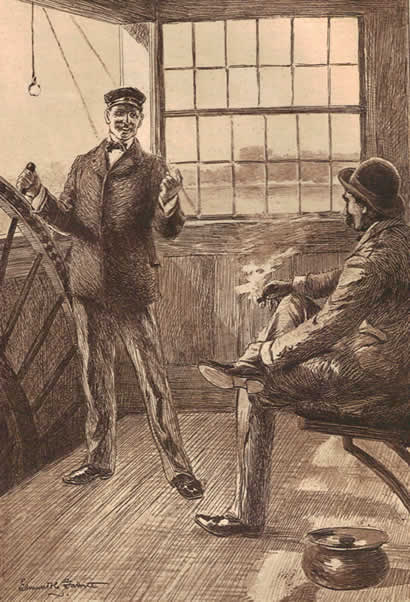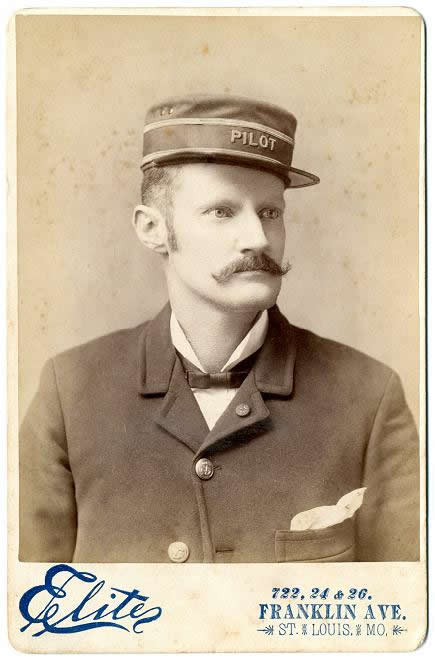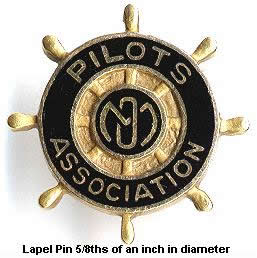

|
When I was a boy, there was but one permanent ambition among my comrades
in our village on the west bank of the Mississippi River. That was, to
be a steamboatman. We had transient ambitions of other sorts, but they
were only transient. When a circus came and went, it left us all burning
to become clowns; the first negro minstrel show that came to our section
left us all suffering to try that kind of life; now and then we had a
hope that if we lived and were good, God would permit us to be pirates.
These ambitions faded out, each in its turn; but the ambition to be a
steamboatman always remained.
|
|
I am a person who would quit authorizing in a minute to go to piloting,
if the madam would stand it. I would rather sink a steamboat than eat,
any time. A pilot, in those days, was the only unfettered and entirely independent
human being that lived in the earth. Piloting on the Mississippi River was not work to me; it was play --
delightful play, vigorous play, adventurous play -- and I loved it... I wish I was back there piloting up & down the river again. Verily,
all is vanity and little worth -- save piloting. |
 Illustration by Edmund Garrett from 1899 edition of LIFE ON THE MISSISSIPPI |
 Unidentified steamboat pilot from the Dave Thomson collection. |
Uniforms on the Mississippi! It beats all the other changes put together,
for surprise. Still, there is another surprise -- that it was not made fifty
years ago. It is so manifestly sensible, that it might have been thought
of earlier, one would suppose. During fifty years, out there, the innocent
passenger in need of help and information, has been mistaking the mate for
the cook, and the captain for the barber -- and being roughly entertained
for it, too. But his troubles are ended now. And the greatly improved aspect
of the boat's staff is another advantage achieved by the dress-reform period. - Life on the Mississippi |
 Pilots' Association lapel pin from the Dave Thomson collection. Clemens wrote about the Pilots' Association in Chapter 15 of Life on the Mississippi |
...all men--kings & serfs alike--are slaves to other men & to
circumstance -- save alone, the pilot -- who comes at no man's back and
call, obeys no man's orders & scorns all men's suggestions. The king
would do this thing, & would do that: but a cramped treasury overmasters
him in the one case & a seditious people in the other. The Senator
must hob-nob with canaille whom he despises, & banker, priest &
statesman trim their actions by the breeze of the world's will & the
world's opinion. It is a strange study, -- a singular phenomenon, if you
please, that the only real, independent & genuine gentlemen in the
world go quietly up and down the Mississippi river, asking no homage of
any one, seeking no popularity, no notoriety, & not caring a damn
whether school keeps or not. |
In
April 1909, Samuel Clemens declined an invitation to attend a celebration in
Natchez, Mississippi for the battleship Mississippi. His letter of regret was
sent to Natchez Mayor William G. Benbrook and was published in the Atlanta
Constitution on April 27, 1909:
| Redding, Conn., April, 1909. -- I know quite well what I am losing. Among
other things, I am losing the chance of seeing -- for a blessed once in
my life -- a Mississippi pilot in supreme and unchallengeable command of
an American battleship. I am losing the chance of hearing the executive
officer say: 'Stand by, there, with the starboard lead,' and of hearing
an affronted voice from the pilot retort: 'I beg your pardon sir, but I'll
call for the leads when I want them.'
But I am old and indolent, and most humbly sacrifice my desires to my
necessities. |
On March 20, 1880, Clemens replied to a letter asking if he would ever like to "Be a boy again" and live a part of his life over. He responded:
Would I live it over again under certain conditions? Certainly I would! The
main condition would be that I should emerge from boyhood as a "cub pilot"
on a Mississippi boat, & that I should by & by become a pilot, &
remain one. The minor conditions would be these: Summer always; the magnolias
at Rifle Point always in bloom, so that the dreamy twilight should have the
added charm of their perfume; the oleanders on the "coast" always
in bloom, likewise; the sugar cane always green -- never any “bagasse”
burnings; the river always bank-full, so we could run all the chutes -- how
heavenly that would be! -- then in the foot of 63, & in a thousand other
places, we should see the thick banks of young willows dipping their leaves
into the currentless water, & we could thrash right along against them without
any danger of hurting anything; & I would require a new "cut-off"
to experiment on, every season -- we tried one about a dozen times, one rainy
night, & then had to go around, after all -- but it was a noble circus while
we had it; I should require that there be a dog-watch in the evening, but none
in the morning -- for a dog-watch in the morning is pure foolishness; I would
rule out the middle watch in the night, except on moonlight nights, because
it makes one feel so dreary & low-spirited & forlorn to rouse out of
a pleasant sleep at dead midnight & go & perch away up there in the
pilot house in the midst of the wide darkness, with apparently nobody alive
in the deserted world but him; but the middle watch in so summer moonlit nights
is a gracious time, especially if the boat steers like a duck, & friends
have staid up to keep one company, & sing, & smoke, & spin yarns,
and blow the whistle when other boats are met (though I remember that the unpracticed
friend from the mainland never blew it right, & consequently always made
a little trouble;) & I would have the trips long, & the stays in port
short; & my boat should be a big dignified freight boat, with a stately
contempt for passenger-hails & a tranquil willingness to 'lay up" for
fog -- being never in a hurry; & her crew should never change, nor ever
die; -- one such crew I have in mind, & can call their names & see their
faces, now: but two decades have done their work upon them, & half are dead,
the rest scattered, & the boat’s bones are rotting five fathom deep
in Madrid Bend. That is the way I would have it all. And in addition, I should
require to be notorious among speakers of the English tongue -- because I should
want to be invited around, a little, you know, & have nice little kindly
attentions in cars & ships & other places where such things help out,
you see, & keep a body from feeling homesick. And when strangers were introduced
I should have them repeat “Mr. Clemens?” doubtfully, & with the
rising inflection -- & when they were informed that I was the celebrated
“Master Pilot of the Mississippi,” & immediately took me by the
hand & wrung it with effusion, & exclaimed, “O, I know that name
very well!” I should feel a pleasurable emotion trickling down my spine
& know I had not lived in vain.
- letter
to David Watt Bowser, 20 March 1880
_____
|
|
Steamboat
MISSOURI, (known as "The Big Missouri") the boat Ben Rogers impersonates
as he approaches Tom Sawyer during the fence whitewashing episode. Original
engraving for the Family
Magazine
1850 was lithographed by Klaupreck & Menzel in Cincinnati. The MISSOURI
ran in the St. Louis-New Orleans trade and was lost by fire in St. Louis on
July 8, 1851.
- Photo
and history of the steamer MISSOURI courtesy of Dave Thomson.
_____
Also see Clemens' Pilot License
Quotations | Newspaper Articles | Special Features | Links | Search